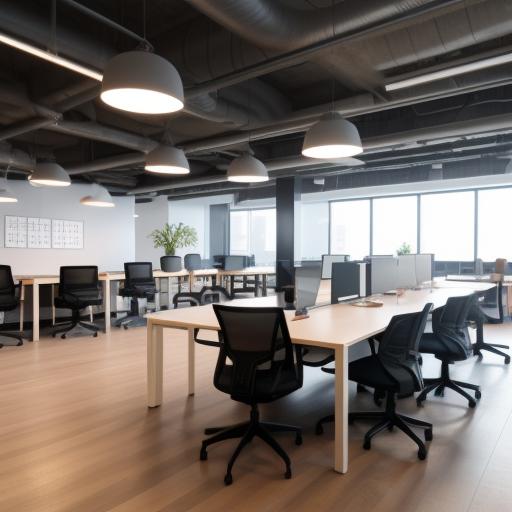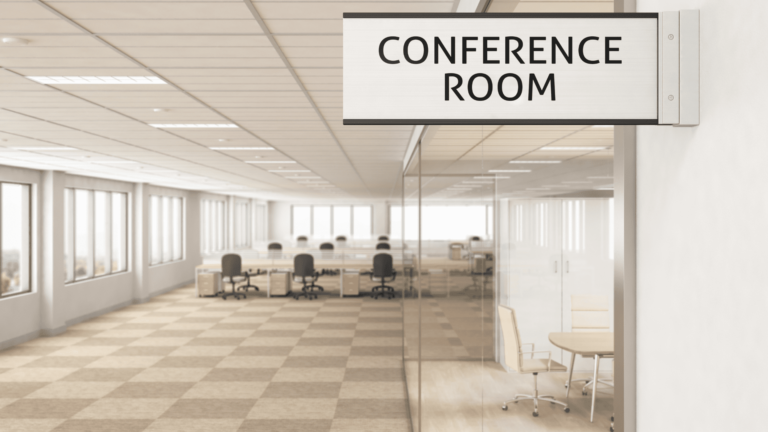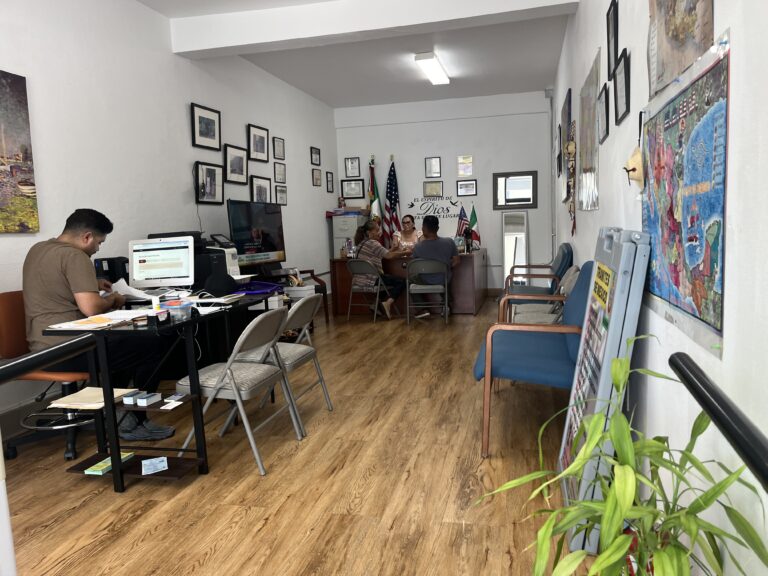7 Key Factors to Consider When Choosing a Coworking Space
Choosing the right coworking space is essential for businesses, freelancers, and startups. The workspace you select can impact your productivity, growth, and networking opportunities. With the increasing number of coworking spaces available, finding the perfect environment can feel overwhelming. Here, we’ll explore seven key factors to consider, ensuring that your choice aligns with your business needs, budget, and future goals.
1. Location and Accessibility
The location of your coworking space plays a critical role in your daily operations. It not only affects your commute but also your access to clients, partners, and essential business services.
- Proximity to Clients and Partners: If your business requires frequent client meetings, choosing a coworking space in a strategic area like Van Nuys is a smart move. A central location enhances your business’s credibility and makes it easier for clients to visit you. Ahron Zilberstein suggests that businesses seeking a professional image often prefer high-demand locations for this reason.
- Commute Considerations: Whether you rely on public transportation or drive, choosing a coworking space that is easily accessible is crucial. Consider nearby transit options, parking availability, and overall commute time. Spaces close to public transit or major highways are highly desirable, especially for businesses that expect clients or team members to visit frequently.
- Local Amenities: Being near cafes, restaurants, and shops can make a coworking space even more attractive. These amenities provide convenience during breaks or for casual business meetings, adding value to your workspace choice.
2. Cost and Membership Flexibility
Cost is always a key factor when selecting a coworking space. You want to ensure that the price is within your budget, while also offering flexible options that can scale with your business as it grows.
- Flexible Membership Plans: Many coworking spaces offer a range of membership options, from part-time or hot desk arrangements to full-time dedicated desks or private offices. Businesses can select plans that align with their current needs while maintaining the flexibility to upgrade or downgrade as required. Small rental offices often provide the best balance between affordability and functionality.
- Transparent Pricing: Be aware of all associated costs, including membership fees, additional service charges, and any hidden costs. It’s important to understand the full financial commitment before signing up. Ahron Zilberstein recommends closely reviewing the terms of membership to avoid unexpected expenses.
- Affordable Options: For startups or small businesses, cost-effective solutions like tiny rental offices are ideal. These spaces offer the flexibility to grow without a large initial investment, making them a practical option for businesses with tight budgets.
3. Amenities and Services
The amenities offered by a coworking space can greatly enhance your work experience. These features range from basic necessities to additional perks that create a more comfortable and productive environment.
- Essential Amenities: At a minimum, a coworking space should provide high-speed internet, reliable office furniture, and access to meeting rooms. These are critical to maintaining your business’s operations and ensuring your team’s productivity.
- Additional Perks: Many coworking spaces go beyond the basics, offering perks like free coffee, kitchen facilities, or even gym access. Some also include networking events or professional development workshops, helping businesses thrive by building a stronger community.
- Support Services: Some coworking spaces provide administrative support, including reception services, mail handling, and IT assistance. These added services can be particularly valuable for small businesses that lack the resources to handle these tasks internally.
4. Workspace Environment and Design
The physical environment of your workspace affects how you and your team work. A well-designed coworking space can boost productivity, creativity, and overall satisfaction.
- Open vs. Private Workspaces: Different coworking spaces offer a mix of open-plan areas, dedicated desks, and private offices. Depending on your business model, you may prefer a quiet, private space or a more collaborative, open environment. Ahron Zilberstein emphasizes the importance of choosing a space that matches your team’s working style.
- Comfort and Ergonomics: The design and comfort of the workspace are crucial for long-term productivity. Ergonomic furniture, sufficient lighting, and a clean, organized environment contribute to a more enjoyable and efficient workday.
- Aesthetic Appeal: Some coworking spaces have modern, sleek designs, while others offer a more laid-back or creative atmosphere. It’s essential to choose a space that aligns with your company culture and creates an environment where you and your team can thrive.
5. Community and Networking Opportunities
One of the greatest benefits of coworking spaces is the opportunity to be part of a larger community. Networking with other professionals, entrepreneurs, and small businesses can lead to collaboration, partnerships, and growth.
- Collaboration and Learning: Coworking spaces are often filled with professionals from diverse industries. This variety creates opportunities to learn from others, share ideas, and potentially collaborate on projects. Events, workshops, and networking sessions are common in coworking spaces, providing additional opportunities to expand your professional circle.
- Supportive Community: The sense of belonging in a coworking community can be motivating. Being surrounded by like-minded professionals creates a supportive environment that fosters innovation and productivity. Ahron Zilberstein highlights the importance of community for business growth, as connections made in coworking spaces often lead to new clients or partnerships.
- Professional Reputation: Working in a reputable coworking space can enhance your business’s image. Clients and partners often view businesses located in these spaces as modern, forward-thinking, and adaptable.
6. Technology and Connectivity
In today’s digital world, technology and connectivity are non-negotiable. A coworking space should provide the necessary tech infrastructure to support your business’s operations.
- High-Speed Internet: Reliable, fast internet is a must for any coworking space. Ensure that the space offers a connection capable of handling your business’s data needs, whether for video conferencing, cloud-based work, or daily communications.
- Access to Tech Tools: Some coworking spaces offer additional tech amenities such as printers, projectors, or even podcast studios. Depending on your business’s needs, these extras can save time and money by providing essential tools on-site.
- Security: Data security is important for all businesses. Ask about the security measures in place for network protection, as well as for physical access to the building and your workspace.
7. Scalability for Future Growth
As your business grows, so will your workspace requirements. Selecting a coworking space that allows for growth is key to avoiding the hassle of relocating as your needs evolve.
- Flexible Expansion Options: Many coworking spaces offer flexible terms that allow you to scale up your office space as your business grows. Whether you start with a tiny rental office and eventually move to a larger dedicated office, having the ability to grow within the same location can save time and reduce disruptions.
- Short-Term Contracts: Opt for coworking spaces that offer short-term leases or month-to-month memberships. This flexibility is especially beneficial for startups or businesses that expect to expand rapidly but are unsure of their future space requirements.
- Long-Term Planning: Ahron Zilberstein advises considering the long-term trajectory of your business when choosing a space. Look for coworking spaces that offer larger office options or entire floors, so when your business expands, you won’t need to move to a new location.
Which Option is Right for Your Business?
After considering the above factors, the next step is determining which coworking space is right for your specific business needs. Every business is different, and what works for one may not work for another. Evaluate your priorities, such as budget, location, and community, and weigh them against your long-term business goals.
With insights from Ahron Zilberstein, you can choose a coworking space that supports both your current operations and future growth. Whether you’re looking for a tiny rental office to get started or a small rental office for a growing team, the right coworking environment can provide the flexibility, community, and resources you need to succeed.
Ready to find the perfect coworking space for your business? Contact Ahron Zilberstein today for expert advice on finding a workspace that fits your needs and helps your business thrive.






